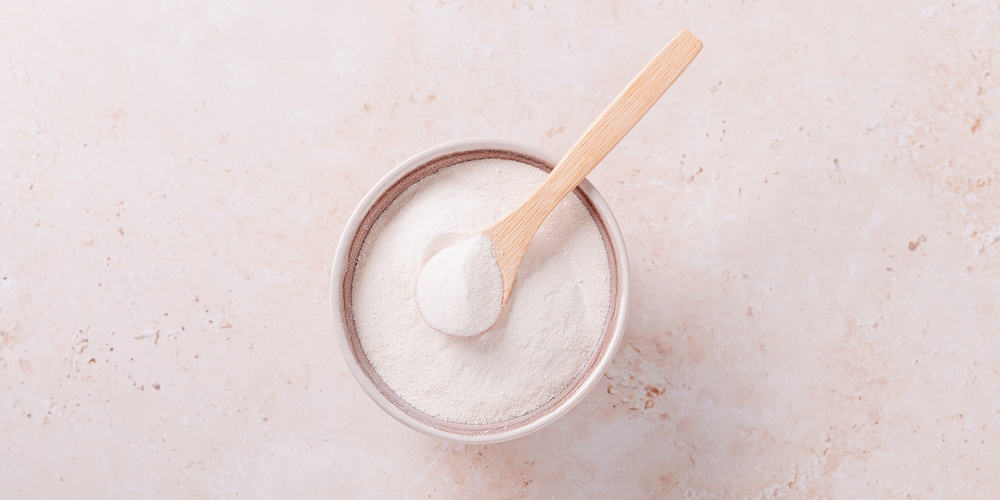Before being a supplement, collagen is an essential protein for humans. It is found throughout most of the body.
Bones, muscles, skin, synovial joints, blood vessels and tendons contain it. And its presence is not insignificant, as it is estimated to represent 30% of the body’s total proteins, making it the most abundant.
Its role? To serve the structural function and help with tissue strength and elasticity. Collagen firms the skin, facilitates bone movement, helps maintain proper bone mineralization, and strengthens blood vessels.
In stores, you’ll find type 1 collagen, type 2 collagen, and sometimes blends. Are there cases where type 2 collagen should be preferred?
Also read | A pharmacist gives her tips for buying the best collagen
Type 2 collagen in cartilage
To be able to act throughout the body, our collagen differs slightly in composition and structure depending on its location. That’s why we don’t talk about a single collagen, but about more than 20 types of collagen or variants, as indicated by this publication.
Thus, the skin contains mostly collagen known as type I, muscles and blood vessels are rich in type III collagen, while the joints are primarily supplied with type II collagen.
It is found within cartilage, made up of a viscous fluid that allows the sliding of different bones over one another while preventing friction. It is precisely collagen that gives it these properties.
The benefits of type 2 collagen for the joints
The presence of type II collagen is essential for cartilage health, as it helps it be more resistant and better absorb shocks, particularly in athletes.
Collagen supplementation has already been shown to:
- a reduction in joint discomfort in athletes, in this study of 24 weeks
- an improvement in comfort and osteoarthritis symptoms according to this meta-analysis from 2019
However, the scientific studies I could find do not necessarily use type II collagen. It is therefore difficult to know whether the observed effects can be attributed to a particular type of collagen or not.

Should type 2 collagen really be preferred for the joints?
If type II collagen is present in the joints, it is not necessarily required to buy supplements that contain only this type of collagen.
Indeed, in supplements, collagen is hydrolyzed: its structure no longer matters since the protein is broken down into small pieces.
It is only within the body that the amino acids from collagen can act and contribute to the synthesis of the body’s native collagen. If the structure of type II collagen is different from other types, it is no longer relevant here.
As for using native type II collagen, its structure is far too large to cross the intestinal barrier. Therefore, it is not effective when taken orally, as noted in the study.
Finally, there is no scientific consensus today on the matter. So it’s impossible to determine the benefit of type 1 collagen supplements versus type 2 when they are in hydrolyzed form.
Also read | 3 studies examine the effects of collagen on joints — what are the results?



